
Gunda Trepp (born 30 December 1958) is a German author and a journalist.

Gunda Trepp (born 30 December 1958) is a German author and a journalist.
Trepp was born in Oldenburg, Germany. From 1982 to 1987, she studied law at the Free University of Berlin. [1] She subsequently attended the Henri-Nannen-School of Journalism. [2] [3] After embarking on her professional career as a lawyer and law lecturer, she began working as a freelance journalist for various media such as Der Spiegel , Frankfurter Allgemeine Zeitung , and the NDR . [4] Trepp was business editor at the Berliner Zeitung until 2004. In 2000, she started a relationship with the religious philosopher and rabbi Leo Trepp and converted to Judaism in 2001. [5] [6]
Together with Leo Trepp, she wrote the book "Dein Gott ist mein Gott". Wege zum Judentum und zur jüdischen Gemeinschaft (Your God is my God. Journey to Judaism and the Jewish community), published in 2005. In 2007, Trepp's book So viele Tage ohne dich (So many days without you) was published by Verlag Herder. Three years after Leo Trepp's death, Gunda Trepp published texts written from 1943 to 2010 on Lebendiges Judentum (Vibrant Judaism). Her most recent publication is Der letzte Rabbiner. Das unorthodoxe Leben des Leo Trepp (The Last Rabbi. The unorthodox life of Leo Trepp) (2018). According to Simon Berninger (Frankfurter Rundschau newspaper), the biography is "the key to understanding this very unusual rabbi". [7] In Jüdische Rundschau, Nikoline Hansen writes that the book is "not only a gripping read but also manages to bring back to life the voice of Leo Trepp" [8] In an interview with Christiane Florin (Deutschlandfunk radio), Gunda Trepp says that only through knowledge and education can non-Jewish Germans help fight antisemitism. They particularly should know more "about how Jewish people live today, about Jewish ethics and how the State of Israel was created". [9] In 2022, german publisher wbg published her latest book "Gebrauchsanweisung gegen Antisemitismus", dealing with the problem of antisemitism and how to efficiently fight it. The same year, Trepp wrote a new foreword and edited "Die Juden" by her late husband, Rabbi Leo Trepp, which was re-issued by Hentrich&Hentrich in the fall of 2022.

Azriel Hildesheimer was a German rabbi and leader of Orthodox Judaism. He is regarded as a pioneering moderniser of Orthodox Judaism in Germany and as a founder of Modern Orthodox Judaism.
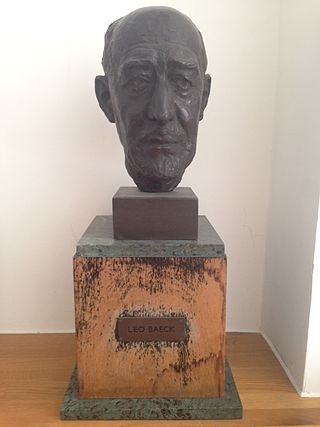
Leo Baeck was a 20th-century German rabbi, scholar, and theologian. He served as leader of Reform Judaism in his native country and internationally, and later represented all German Jews during the Nazi era. After the Second World War, he settled in London, in the United Kingdom, where he served as the chairman of the World Union for Progressive Judaism. In 1955, the Leo Baeck Institute for the study of the history and culture of German-speaking Jewry was established, and Baeck was its first international president. The Leo Baeck Medal has been awarded since 1978 to those who have helped preserve the spirit of German-speaking Jewry in culture, academia, politics, and philanthropy.

Abraham Geiger was a German rabbi and scholar who is considered the founding father of Reform Judaism and the academic field of Quranic studies. Emphasizing Judaism's constant development through its history and universalist traits, Geiger sought to re-formulate received forms and design what he regarded as a religion compliant with modern times.
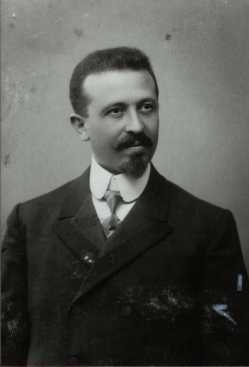
Aaron Tänzer was a rabbi in Austria and Germany, chaplain and author.
Isaac Breuer was a rabbi in the German Neo-Orthodoxy movement of his maternal grandfather Samson Raphael Hirsch, and was the first president of Poalei Agudat Yisrael.

Moritz Güdemann was an Austrian rabbi and historian. He served as chief rabbi of Vienna.

The Institute for the Study and Elimination of Jewish Influence on German Church Life was a cross-church establishment by eleven German Protestant churches in Nazi Germany, founded at the instigation of the German Christian movement. It was set up in Eisenach under Siegfried Leffler and Walter Grundmann. Georg Bertram, professor of New Testament at the University of Giessen, who led the Institute from 1943 until the Institute's dissolution in May 1945, wrote about its goals in March 1944:
"This war is Jewry's war against Europe." This sentence contains a truth which is again and again confirmed by the research of the Institute. This research work is not only adjusted to the frontal attack, but also to the strengthening of the inner front for attack and defence against all the covert Jewry and Jewish being, which has oozed into the Occidental Culture in the course of centuries, ... thus the Institute, in addition to the study and elimination of the Jewish influence, also has the positive task of understanding the own Christian German being and the organisation of a pious German life based on this knowledge.
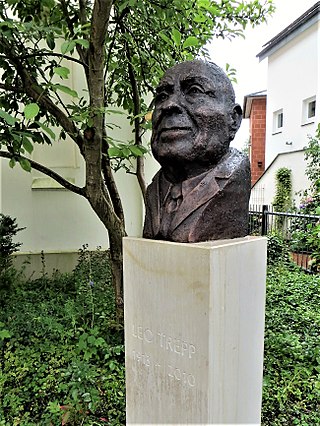
Leo Trepp was a German-born American rabbi who was the last surviving rabbi who had led a congregation in Nazi Germany during the early days of The Holocaust.
Andreas Gotzmann is a German historian of Judaism and scholar of religion. He holds the Chair for Jewish Studies and Religious Studies at the University of Erfurt.

Werner van der Zyl was a rabbi in Berlin and in London, where he came in 1939 as a refugee rabbi from Germany. He was the prime mover and first director of studies of the Jewish Theological College of London. The college was inaugurated in 1956 and was renamed Leo Baeck College shortly afterwards at his suggestion.
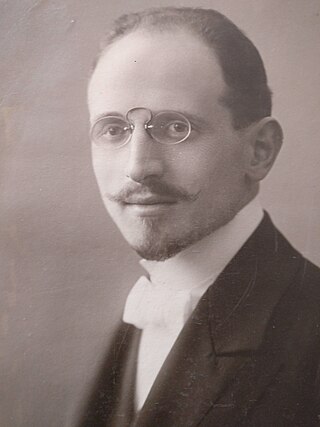
Arthur Löwenstamm was a Jewish theologian, writer and rabbi in Berlin and in London, where he came in 1939 as a refugee from Nazi Germany.

Arno Nadel was a Lithuanian musicologist, composer, playwright, poet, and painter.
An estimated 100,000 German Jewish military personnel served in the German Army during World War I, of whom 12,000 were killed in action. The Iron Cross was awarded to 18,000 German Jews during the war.
Margarete Susman was a German-Jewish poet, writer, and critic who lived much of her life in Switzerland. The author of hundreds of essays, five collections of poetry, and notable literary-critical works, she distinguished herself as a philosophical writer addressing vital questions in literature, politics, culture and religion. Her 1946 work Das Buch Hiob und das Schicksal des jüdischen Volkes (1946), a reflection on Jewish history through the lens of the Biblical book of Job, was one of the earliest postwar Jewish theological responses to the Holocaust.

The Jewish Museum of Switzerland in Basel provides an overview of the religious and everyday history of the Jews in Basel and Switzerland using objects of ritual, art and everyday culture from the Middle Ages to the present.
Herbert Arthur Strauss was a German-born American historian.
Jüdische Rundschau was a Jewish periodical that was published in Germany between 1902 and 1938. It was the biggest Jewish weekly publication in Germany, and was the origin of the Zionist Federation of Germany.
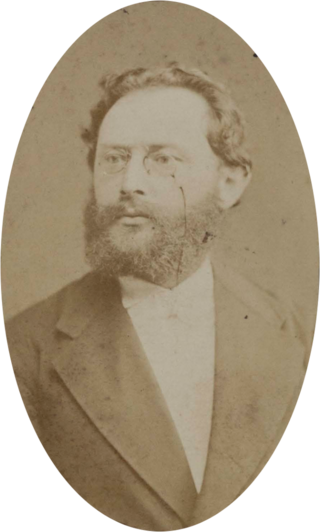
Sinai Simon Naschér was a Hungarian Jewish religious leader and writer.
Monika Schwarz-Friesel is a German cognitive scientist, professor at Technische Universität Berlin and one of Europe's most distinguished antisemitism researchers according to Marc Neugröschel from the newspaper The Times of Israel. She is often interviewed by media outlets like Haaretz, Der Standard or Der Tagesspiegel on her research on current forms of antisemitism, which often take place on the internet.
Julius Hans Schoeps is a German historian.